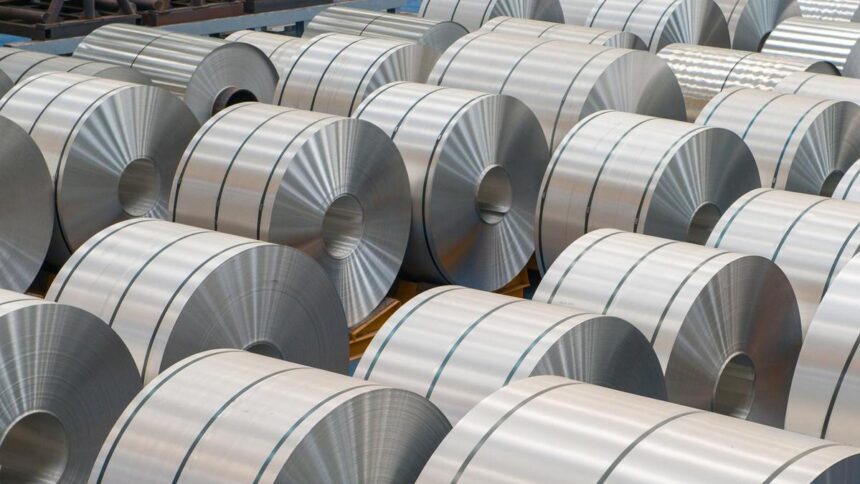The Federation of Indian Mineral Industries (FIMI), which represents India’s mining sector, has urged the Finance Ministry to raise the import duty on aluminium to 15% in order to protect the domestic industry. In its recommendations for the 2026-27 Union Budget, FIMI emphasized the need for timely policy measures to safeguard the domestic aluminium sector.
India’s aluminium manufacturing is currently under pressure due to increased imports from surplus nations, influenced by global tariff and non-tariff protectionist policies on aluminium, according to FIMI.
FIMI also highlighted ongoing and planned investments exceeding ₹1.5 lakh crore aimed at boosting domestic aluminium production capacity. An additional ₹1.6 lakh crore is anticipated to enhance primary aluminium production to 7.2 million tonnes annually by 2029-30, and approximately 9 million tonnes by 2032-33, aligning with the Aluminium Vision Document released by the Ministry of Mines earlier this year.
These investments are expected to generate over 800,000 direct and indirect jobs, contributing significantly to India’s industrial growth trajectory. FIMI stated that these efforts will enhance the Government’s ‘Viksit Bharat’ vision by creating resilient supply chains.
Aluminium imports have risen notably in recent years, particularly from countries such as China, Russia, ASEAN nations, and West Asia. Despite ample domestic capacity, nearly 55% of India’s aluminium demand in 2025-26 is projected to be satisfied through imports.
FIMI has expressed concern regarding the influx of aluminium scrap, noting that India has become the world’s largest importer of this material. This trend results from a lack of quality and Bureau of Indian Standards (BIS) regulations for recycling and scrap imports, leading to the diversion of low-quality scrap from regions like the US, EU, UAE, and UK into the Indian market.
FIMI has called for the establishment of quality standards for aluminium scrap, consistent with India’s aluminium vision document, which mirrors existing global standards.
Conversely, the federation has requested a reduction in the import duty on critical raw materials required for aluminium production. Producers suffer from high production costs stemming from expensive raw materials, an inverted duty structure, various taxes and cesses, electricity duty, and elevated logistics costs.
Despite India being among the largest holders of bauxite and coal reserves globally, domestic aluminium production costs remain among the highest in the world, with taxes and duties comprising nearly 17% of production costs, thereby impeding the sector’s growth.
Published on November 20, 2025.










